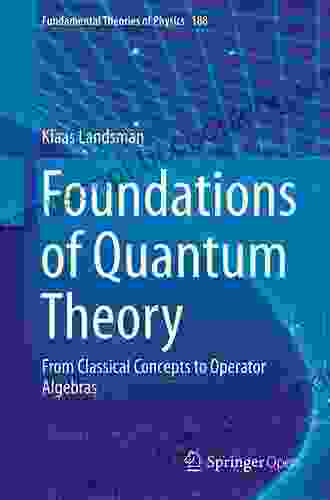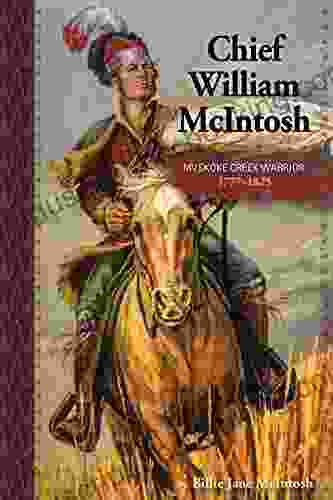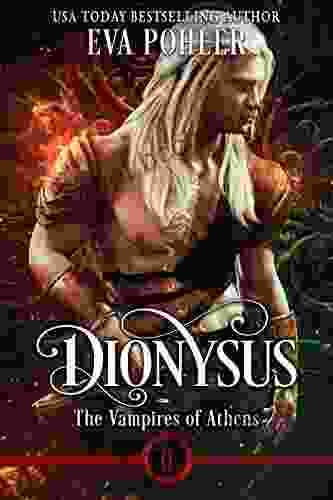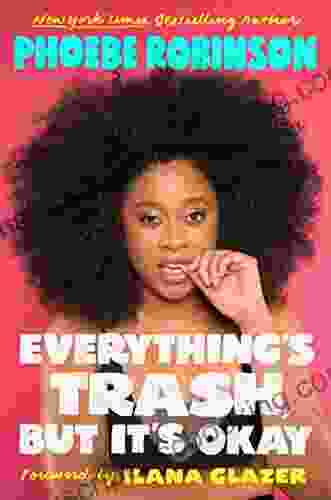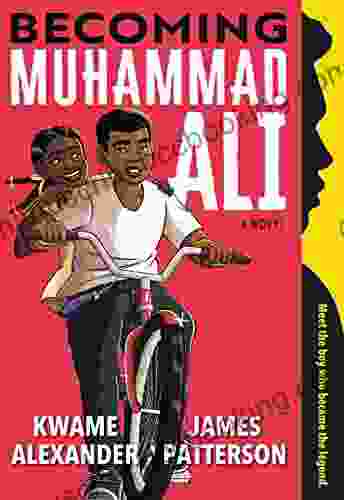From Classical Concepts to Operator Algebras: Unveiling the Fabric of Reality

The world of physics has witnessed an extraordinary transformation over the past century, with the advent of quantum mechanics. This revolutionary theory has reshaped our understanding of the universe, challenging classical notions and introducing a whole new realm of possibilities. At the heart of this quantum revolution lies a fascinating mathematical structure known as operator algebras. These abstract mathematical objects serve as a sophisticated language for describing the intricacies of the quantum world.
4.4 out of 5
| Language | : | English |
| File size | : | 16420 KB |
| Screen Reader | : | Supported |
| Print length | : | 897 pages |
| X-Ray for textbooks | : | Enabled |
Classical Concepts: The Foundation
To fully appreciate the profound impact of operator algebras, it is essential to delve into the classical concepts upon which they are built. Classical physics, governed by the laws of Newton and Maxwell, reigned supreme for centuries. It provided a stable and predictable framework for understanding the world around us. However, as scientists ventured into the realm of the very small, classical concepts began to unravel.
The Enigma of Quantum Mechanics
At the atomic and subatomic scales, the familiar laws of classical physics seemed to break down. Particles exhibited both wave-like and particle-like properties, and their behavior could only be described probabilistically. This enigmatic world demanded a new theoretical framework, one that could accommodate the strange and wonderful phenomena of quantum mechanics.
The Advent of Operator Algebras
Amid the confusion and uncertainty that characterized the early days of quantum mechanics, a group of brilliant mathematicians emerged with a revolutionary idea. They proposed that the key to understanding the quantum realm lay in the realm of mathematics, particularly in the intricate world of operator algebras. These mathematical structures provided a powerful language for describing the non-commutative properties of quantum observables, opening up new avenues for exploring the mysterious world of quantum phenomena.
Operator Algebras: A Window into the Quantum World
Operator algebras are abstract mathematical objects that possess a rich and complex structure. They are defined as sets of operators that act on a Hilbert space, a mathematical construct that serves as a foundation for quantum mechanics. The non-commutative nature of operator algebras allows them to capture the fundamental properties of quantum observables, such as their uncertainty and probabilistic behavior.
From Classical to Quantum: A Paradigm Shift
The transition from classical concepts to operator algebras marks a paradigm shift in our understanding of the physical world. Classical physics, with its deterministic and predictable nature, gives way to the probabilistic and indeterministic nature of quantum mechanics. Operator algebras provide the mathematical framework for navigating this new quantum realm, allowing us to explore the counterintuitive and fascinating phenomena that lie at the heart of the universe.
Applications of Operator Algebras in Physics
The applications of operator algebras in physics are far-reaching and profound. They play a pivotal role in various fields, including:
- Quantum Field Theory: Operator algebras provide the mathematical foundation for describing quantum fields, which are the fundamental building blocks of the universe.
- Condensed Matter Physics: Operator algebras are used to understand the electronic properties of materials, leading to advancements in areas such as superconductivity and magnetism.
- Quantum Information Theory: Operator algebras are essential for studying quantum entanglement and quantum computing, opening up new possibilities for secure communication and information processing.
The journey from classical concepts to operator algebras is a testament to the power of mathematics in unraveling the mysteries of the physical world. Operator algebras have proven to be an indispensable tool for understanding the intricate tapestry of quantum mechanics. As we continue to delve deeper into the realms of quantum phenomena, operator algebras will undoubtedly serve as a beacon guiding our exploration of the fundamental nature of reality.
4.4 out of 5
| Language | : | English |
| File size | : | 16420 KB |
| Screen Reader | : | Supported |
| Print length | : | 897 pages |
| X-Ray for textbooks | : | Enabled |
Do you want to contribute by writing guest posts on this blog?
Please contact us and send us a resume of previous articles that you have written.
 Book
Book Novel
Novel Page
Page Chapter
Chapter Text
Text Story
Story Genre
Genre Reader
Reader Library
Library Paperback
Paperback E-book
E-book Magazine
Magazine Newspaper
Newspaper Paragraph
Paragraph Sentence
Sentence Bookmark
Bookmark Shelf
Shelf Glossary
Glossary Bibliography
Bibliography Foreword
Foreword Preface
Preface Synopsis
Synopsis Annotation
Annotation Footnote
Footnote Manuscript
Manuscript Scroll
Scroll Codex
Codex Tome
Tome Bestseller
Bestseller Classics
Classics Library card
Library card Narrative
Narrative Biography
Biography Autobiography
Autobiography Memoir
Memoir Reference
Reference Encyclopedia
Encyclopedia Esmeralda Santiago
Esmeralda Santiago Eugene Don
Eugene Don Neil Chelton
Neil Chelton Faye Kellerman
Faye Kellerman Eva Saulitis
Eva Saulitis Katy Hudson
Katy Hudson P J Hoover
P J Hoover Helen Scales
Helen Scales Frank Ching
Frank Ching Esther H Schor
Esther H Schor Geri Lobiondo Wood
Geri Lobiondo Wood F R Lifestyle
F R Lifestyle Frances Thomas
Frances Thomas Fiona Handyside
Fiona Handyside Eugene B Fluckey
Eugene B Fluckey Felicity Pine
Felicity Pine Marci Ien
Marci Ien Felicity Pulman
Felicity Pulman Heather Davis
Heather Davis T I Lowe
T I Lowe
Light bulbAdvertise smarter! Our strategic ad space ensures maximum exposure. Reserve your spot today!
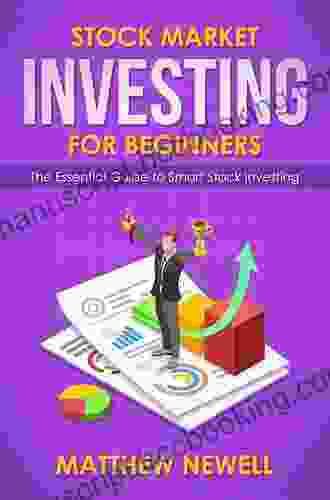
 Rodney ParkerLearn the Basics of Stock Market and Dividend Investing Strategies in Just...
Rodney ParkerLearn the Basics of Stock Market and Dividend Investing Strategies in Just... Johnny TurnerFollow ·15.7k
Johnny TurnerFollow ·15.7k Al FosterFollow ·10k
Al FosterFollow ·10k Casey BellFollow ·9.1k
Casey BellFollow ·9.1k Herman MitchellFollow ·12.8k
Herman MitchellFollow ·12.8k Neil ParkerFollow ·3.8k
Neil ParkerFollow ·3.8k Giovanni MitchellFollow ·4.8k
Giovanni MitchellFollow ·4.8k Earl WilliamsFollow ·2.2k
Earl WilliamsFollow ·2.2k Jedidiah HayesFollow ·16.4k
Jedidiah HayesFollow ·16.4k
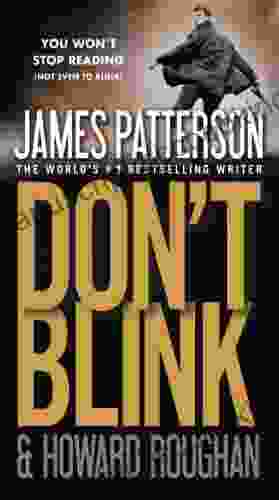
 W.H. Auden
W.H. AudenStep into a World of Thrilling Deception: Don Blink by...
Unveiling the Masterpiece of Suspense:...
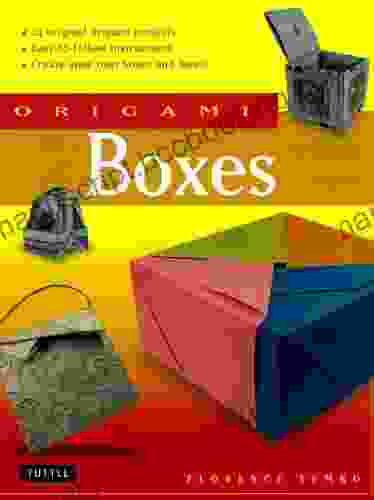
 Jaylen Mitchell
Jaylen MitchellUnleash Your Creativity with "This Easy Origami": A...
: Embark on an Enchanting Voyage into the...
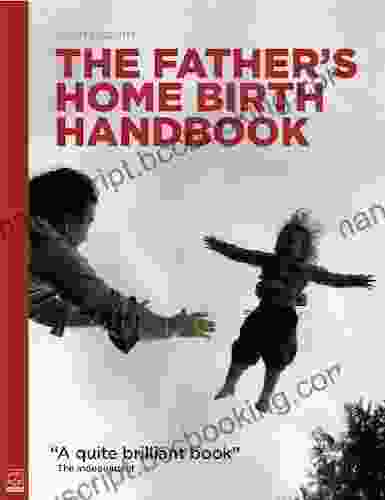
 Vladimir Nabokov
Vladimir NabokovEmpowering Home Births: A Comprehensive Guide for Fathers...
An In-Depth Exploration of Paternal...

 Juan Rulfo
Juan RulfoThe Maya Exodus: Indigenous Struggle for Citizenship in...
The Maya Exodus: Indigenous Struggle for...
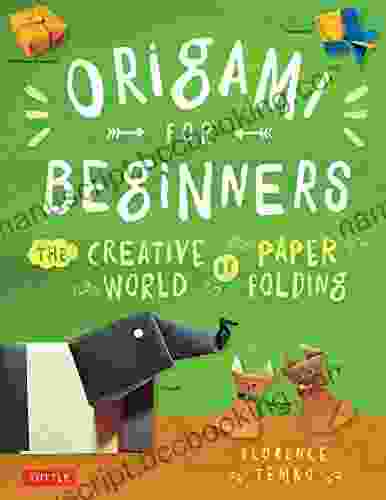
 Julio Ramón Ribeyro
Julio Ramón RibeyroKana Made Easy: Dive into Japanese the Fun and Effortless...
Unveiling the Secrets...
4.4 out of 5
| Language | : | English |
| File size | : | 16420 KB |
| Screen Reader | : | Supported |
| Print length | : | 897 pages |
| X-Ray for textbooks | : | Enabled |


